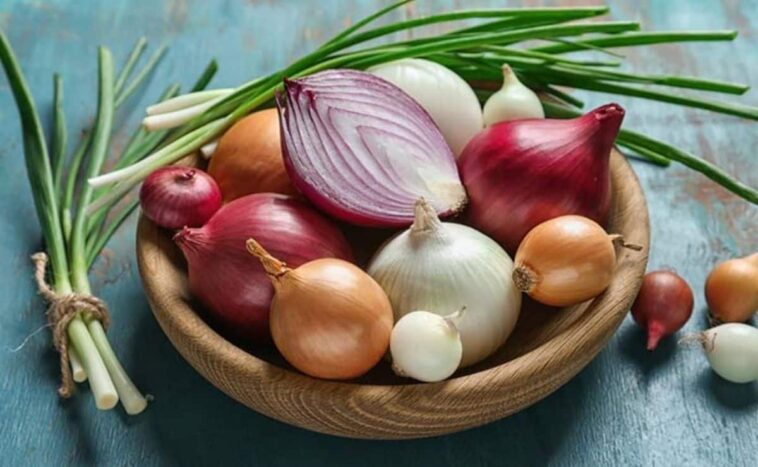
Health Benefits of Onions
Onions are a rich source of vitamins, minerals, and fibre and are known to provide numerous health benefits, including:
Lower Risk of Cancer
Onions contain an abundance of chemicals that aid in the battle against cancer. Onions are among the richest dietary sources of quercetin, a nutrient known to inhibit the activity or formation of cancer-causing substances. A diet abundant in quercetin has been linked to a decreased risk of developing lung cancer.
Lower Risk of Heart Disease and Stroke
responsible for the pungent flavour and odour of onions. Organic sulphur compounds reduce cholesterol levels and may help break up blood blockages, thereby decreasing the risk of heart disease and stroke. To extract the most sulphur compounds from onions, you should consume them raw rather than cooked.
Diabetes Control
Both the quercetin and organic sulphur compounds in onions are known to stimulate insulin production, making them a healthy option for diabetics.
Lower Risk of Alzheimer’s Disease
Nutrition
Nutrients Per Serving
A ½ -cup serving of chopped, raw white onion contains:
- Calories: 32
- Carbohydrates: 7 grams
- Protein: 1 grams
- Fat: 0 grams
- Fiber: 1 grams
- Sugar: 3 grams
Onions are also a good source of:
- Vitamin C
- Vitamin B6
- Potassium
- Manganese
- Copper
Buy this on Amazon
Parachute Advansed Curry Leaves Hair Oil for Hair Fall and
Greying Control –With Natural Coconut Oil & Vitamin E – 200ml
Parachute Advansed Ayurvedic Coconut Hair Oil with Neem, Amla,
Bhringraj & 22 Natural Herbs | Reduces Dandruff, Thinning &
Things to Watch Out For
Onions may affect your body odour, which is likely the only negative effect you’ll notice from consuming them. When your body breaks down the sulphur compounds in onions, they can react with perspiration on your skin to produce an odour that is generally regarded as unpleasant.
Onions may exacerbate flatulence and bloating in individuals with Irritable Bowel Syndrome. Consequently, their consumption should be restricted.
Also read: 10 Health Benefits of Mangoes
How to Prepare Onions
Prepare onions as near to serving time as possible. Their flavour diminishes and their aroma intensifies the longer they rest after being cut.
When cutting onions, the eyes of many individuals tear up. To avoid this issue, cut scallions under water or refrigerate them for 30 minutes prior to slicing. Leave the root intact when slicing an onion, as it contains the highest concentration of organic sulfuric compounds, which cause tears.
Onions can be sautéed, braised, boiled, steamed, baked, grilled, caramelised, roasted, and fried.
Onions may be preserved by chilling, pickling, canning, or dehydration. Note that frozen onions should only be used for culinary purposes.
Onions enhance the flavour of any dish and can be consumed for breakfast, lunch, or supper. Here are some methods to increase your intake of onions:
- Mix diced onion, jalapeño, tomato, and cilantro with lime juice for a spicy guacamole dip.
- Combine rice with caramelized onions and broth for a rice dish with a little sweetness.
- Bread fresh-cut onions then fry them to make delicious onion rings.
- Mix grated onions with rice vinegar, soy sauce, sugar, and vegetable oil for a refreshing salad dressing.
- Add cooked onions to omelets, frittatas, and quiches.
- Add onions to stir fry dishes.
- When making chili, add onions to kick up the flavor.
- Try adding caramelized onions to savory baked goods like cornbread, focaccia, and cheddar biscuits.







